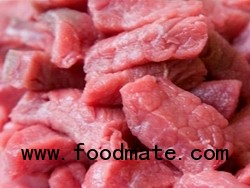
The country plans to send delegations to its top 20 beef importing nations as part of the campaign.
The carcass of a cow that died in 2010 in southern Brazil was found to contain the disease-carrying agent. However, the country's Agriculture Ministry claimed in the latest report that the animal did not 'manifest the disease nor die of it'.
Despite assurances from the ministry, Japan imposed a ban on beef shipments and noted that it will purchase beef from other exporters, such as Australia and the US.
Even though Japan is not a major importer of Brazilian beef, the ministry is concerned that other nations may also impose restrictions and has initiated a campaign.
In a statement, the ministry has assured that the findings indicate that its beef does not present any risk to public health or animal sanitary safety.
Agriculture Ministry secretary general Jose Carlos Vaz said that the government will offer necessary clarifications, in order to eliminate the concerns about the country's animal sanitation defence system.
Brazil is the world's leading exporter of beef and the country has shipped beef worth $4.2bn for the first nine months of this year, up nine percent from 2011.
Russia is the largest importer of Brazilian beef, accounting for 20% of the total beef purchases.
Mad cow disease, which is scientifically known as bovine spongiform encephalopathy (BSE), damages the central nervous system in cattle, and people who consume the contaminated beef can develop a progressive type of dementia.





